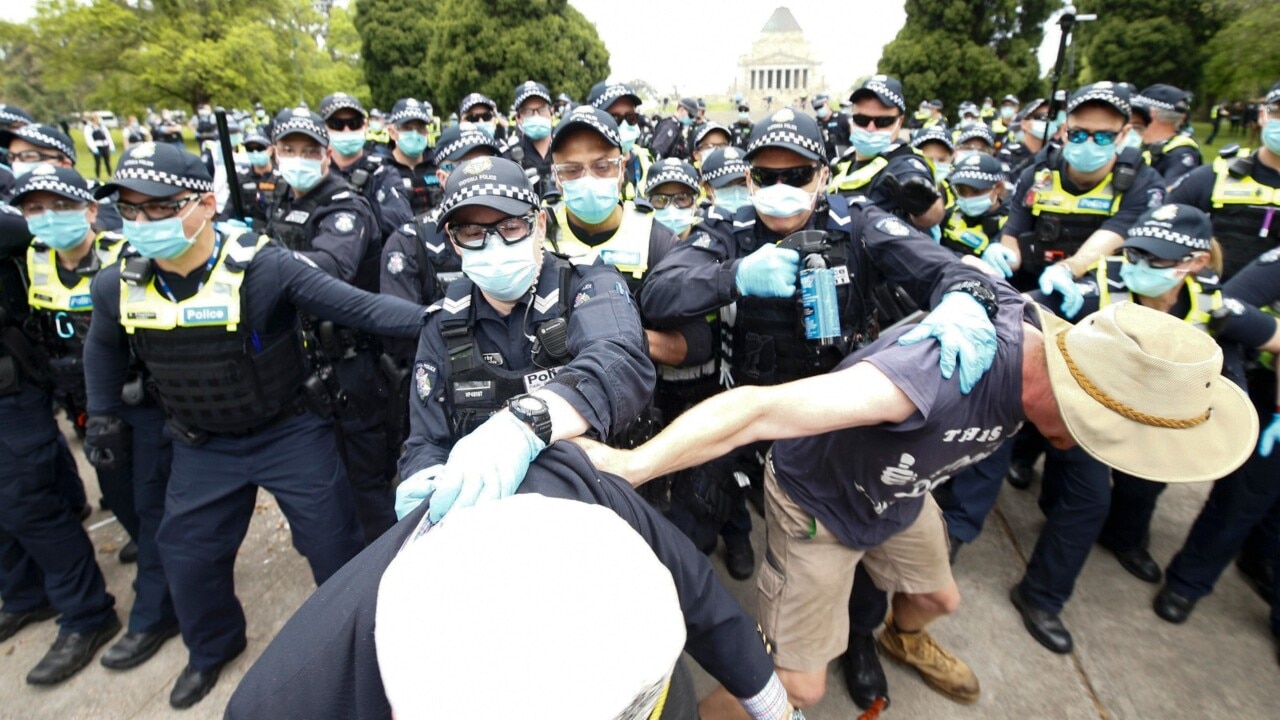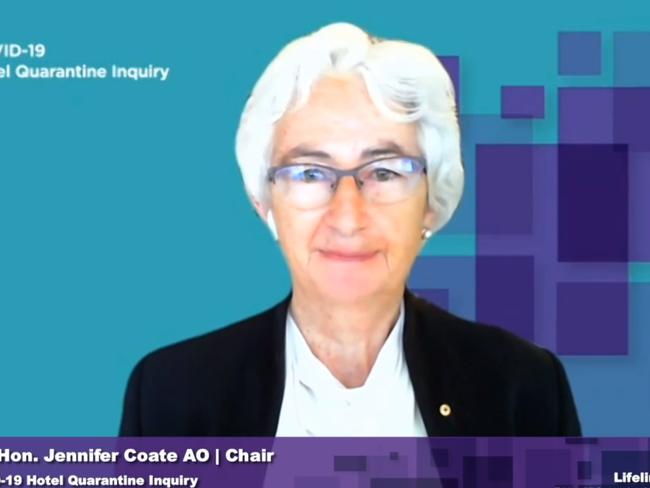Hotel quarantine inquiry to recommend re-opening Victoria to overseas arrivals
An interim report tabled by Victoria’s hotel quarantine inquiry has revealed the bungled program cost taxpayers a whopping $195 million.

Coronavirus
Don't miss out on the headlines from Coronavirus. Followed categories will be added to My News.
Victoria’s botched hotel quarantine program cost the state a whopping $195 million.
The inquiry into the scheme has for the first time revealed the true cost of the ill-fated program, which seeded the state’s devastating second wave that killed 800 people.
It has found the “direct financial cost” was about $195 million.
The Department of Jobs, Precincts and Regions spent about $133.4 million to June 30, while the Department of Health and Human Services had splashed DHHS about $51.288 million by September 16.
The Department of Justice and Community Safety, which was called in to take control of the scheme after major errors were revealed, coughed up about $10.90 million to September 30.
It’s expected the interim report will recommend Victoria re-open to travellers returning from overseas, and potentially call for them to be quarantined at home.
Board of inquiry chair, retired judge Jennifer Coate, handed the interim findings to Governor Linda Dessau around midday.
The findings could include a recommendation that returning travellers be quarantined for 14 days at their home, if they have a stable place of residence and return negative COVID-19 tests.
The Department of Health and Human Services had told the inquiry it was considering such a proposal before National Cabinet decided on March 27 to require people to be quarantined in a “designated facility’’ such as a hotel.
Those who test positive would likely be transferred to a so-called “health hotel’’ such as the one operated by Alfred Health at the Brady Hotel in Melbourne’s city centre.

The findings will lay out a road map for how Victoria can resume accepting overseas travellers, as other jurisdictions do, including New South Wales, Queensland and the Northern Territory.
This would include an emphasis on the health aspects of the program, which would see the health hotel run like an infectious hospital ward, rather than as an employment program like the first quarantine program.
The Victorian program was suspended on July 8 after security guards contracted COVID-19 from detained guests and spread it across Melbourne’s northern and western suburbs.
The inquiry was told three quarantine breaches at the Rydges on Swanston and Stamford Plaza hotels in May and June seeded 99 per cent of Victoria’s second wave, which killed 800 people and led to a devastating four-month lockdown.
By comparison, only 19 people died in the first wave when coronavirus first arrived in Victoria, mainly from people arriving from overseas.

The inquiry did not hear any evidence about electronic monitoring of detained guests, so it is unlikely this would form part of any specific recommendations.
Ms Coate did call evidence from a trauma specialist, psychologist Dr Rob Gordon, who detailed the mental harm caused by holding people for 14 days in hotel rooms.
She also questioned several witnesses on why consideration was not given to detaining people in their own homes.
The Andrews Government and Victoria Police had said up to one in four people who were meant to be isolating at home were not complying, but it later emerged this was incorrect, and only a tiny minority flouted the self-isolation rules.
A number of affidavits have yet to be published by the inquiry, including additional sworn statements from Premier Daniel Andrews, Police Minister Lisa Neville, and former Chief Commissioner Graham Ashton, relating to detailed phone records tendered late to the inquiry.
Chief Health Officer Brett Sutton, Department of Health and Human Service secretary Kym Peake, and other DHHS employees have also submitted further statements.
It is not yet known when these statements will be made public by the inquiry.
MORE NEWS
Vaccine ‘weeks away’ as Victoria continues zero case streak



